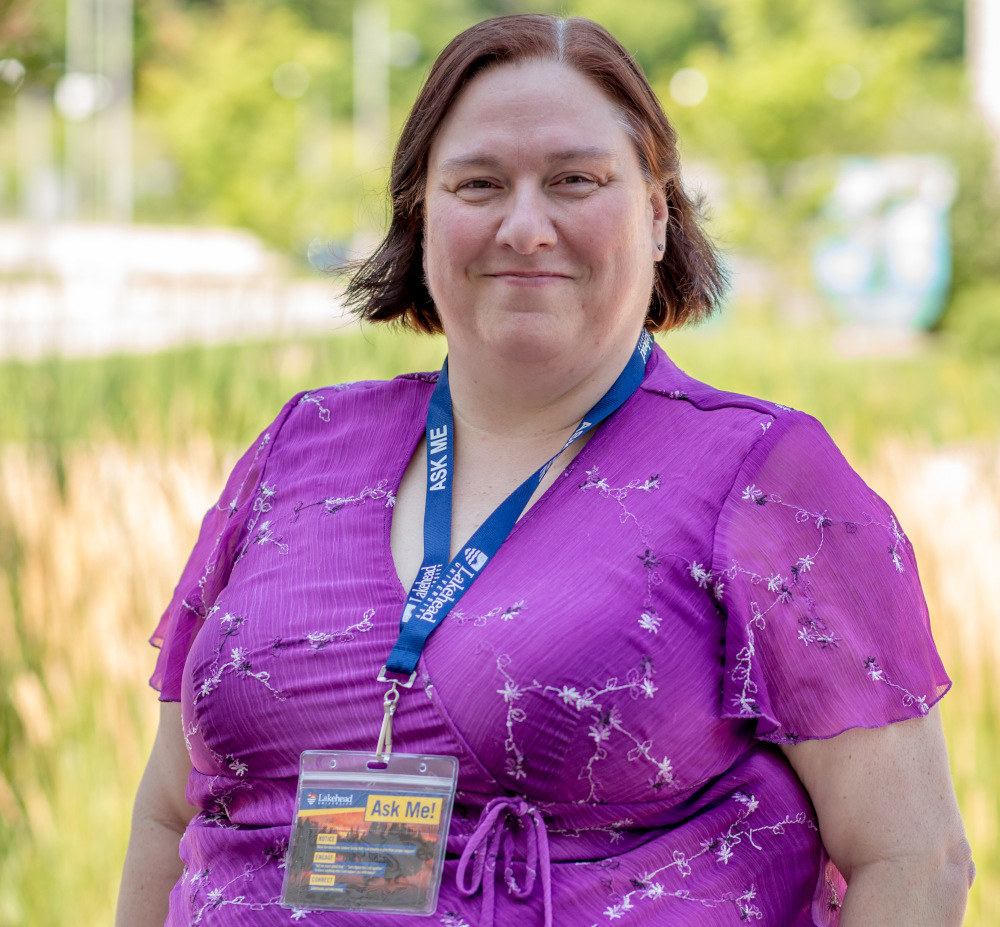Lakehead University researchers receiving more than $300k in SSHRC grants

Stock image.
November 16, 2022 – Thunder Bay and Orillia, Ont.
Her experiences as the child of parents who emigrated from the Soviet Union to Israel prompted Professor Mirit Grabarski’s research into why some immigrants find more success in Canada’s labour market than others do.
“I heard a lot of stories about immigrants searching for jobs and about integration through my parents and their friends,” said Dr. Grabarski, an Assistant Professor in Lakehead University’s Faculty of Business Administration who is leading the Social Sciences and Humanities-funded research project.
“I noticed that not everyone achieved their professional goals and because of that I was wondering what made the difference.”
As an adult immigrant coming to Canada, Dr. Grabarski tried understanding and measuring the motivational cognitive component behind that difference - which she labelled “career empowerment” in her PhD dissertation.
“The next natural step was to take it back to where it started, which is immigrants. I was lucky to have Dr. Jelena Zikic take interest in this project and I hope we will be able to provide some interesting insights,” she said.
Dr. Zikic is with the School of Human Resource Management at York University. Together, the researchers will explore why the integration of immigrants into the Canadian labour market is not living up to its full potential.
Upon arrival to Canada, highly educated and skilled immigrant professionals are underemployed, which weakens the goals of the national economic policy and the immigrants’ own career goals.
This is why it is important to understand how employers can support the integration of skilled immigrants into the workforce and better utilize their human capital.
“While recruitment of immigrant employees occurs on a regular basis, the process of organizational integration beyond entry point is still very much unclear. This research will investigate the immigration process and identify practices of inclusion for skilled immigrants that support the long-term goals of the Canadian government,” Dr. Grabarski said.
She and her team are receiving a $64,000 Insight Development grant from SSHRC to perform this study over two years.
The research team will consider both organizational and individual perspectives in seeking to understand successful career integration for skilled immigrants.
For Dr. Meridith Lovell-Johnston in Lakehead University’s Faculty of Education and her research team, their SSHRC-funded project exploring humanizing learning was inspired when post-secondary schools had to move online due to COVID-19.

In 2020, eCampus Ontario circulated a funding call seeking proposals to develop open access resources in a variety of different areas, including humanizing learning.
“This call coincided with events in our own faculty around the move to completely online learning due to the COVID-19 pandemic,” said Dr. Lovell-Johnston, who works at Lakehead Orillia.
In the second year, they will seek other post-secondary educators external to their schools to widen the participant pool. As well, they will implement and assess humanizing learning principles into courses in the Faculty of Education through their working groups.
“Looking more widely at the topic, students who traditionally face barriers to post-secondary learning, such as mature students, international students, and others, also experience a number of significant barriers to online learning,” said Dr. Lovell-Johnston.
Research has found that moving online by necessity rather than choice creates headaches for the average student – headaches which present even more challenges for mature students, international students, and others.
“In developing the SSHRC proposal, we wanted to examine the first transition to post-secondary, when these students would experience online instruction while also adapting to university or college studies. We were very excited to reach out to our local colleges to collaborate on the proposal,” Dr. Lovell-Johnston said.
The research team, which is receiving a $61,804 Insight Development grant, includes co-applicants Dr. Joan Chambers and Dr. Sonia Mastrangelo, who are both with the Faculty of Education at Lakehead University.
Collaborators include Helen DeWaard, Lucas Johnson, Sabreena MacElheron, Steven Secord, who are all with Lakehead’s Faculty of Education; Kimberly Veneziale from Confederation College; and Wayne Brown from Georgian College.
“Congratulations to each of these researchers and thank you to SSHRC for its continued support,” said Dr. Andrew P. Dean, Lakehead’s Vice-President, Research and Innovation.
“Research in Social Sciences and Humanities has a long and successful history at Lakehead University. These Insight grants show the diversity, timeliness, and applicable nature of this research.”
In 2021/22, Lakehead University received nearly $2 million in assistance from the Research Support Fund to support the indirect costs of research, which includes costs for supporting the management of intellectual property, research and administration, ethics and regulatory compliance, research resources, and research facilities.
Insight Development Grants (two-year grants)
Total funding received: $318,472
Dr. Michel Beaulieu, Department of History, “The Martin Incident: Espionage, the Image of Canada, and Forgotten Lessons”, $43,964.
- Co-applicant
- Dr. David Ratz, Department of History, Lakehead University
- Collaborator
- Dr. Kari Alenius, University of Oulu
Dr. Martin-Joe Ezeudu, Bora Laskin Faculty of Law, “The Drift from Corporate Social Responsibility to Corporate Legal Responsibility: A New Reality and
Consequences for Canadian Mining Transnational Corporations?” $21,760.
Dr. Mirit Grabarski, Faculty of Business Administration, “Hired! What's next?: Career Empowerment and Integration of Immigrants in Organizations”, $64,607.
- Co-applicant
- Dr. Jelena Zikic, York University
Dr. Max Haiven, Department of English, “The Worker as Futurist: Cultivating the Radical Imagination with Amazon Employees through Speculative Fiction Writing”, $53,936.
- Collaborators
- Dr. Sarah Olutola, Lakehead University
- Dr. Graeme Webb, The University of British Columbia
Dr. Meridith Lovell-Johnston, Faculty of Education, “Humanizing Learning in Online and Offline Spaces for Instructors Working with Adult Learners Who Face Barriers to Postsecondary Education”, $61,804.
- Co-applicants
- Dr. Joan Chambers, Faculty of Education, Lakehead University
- Dr. Sonia Mastrangelo, Faculty of Education, Lakehead University
- Collaborators
- Helen DeWaard, Faculty of Education, Lakehead University
- Kimberly Veneziale, Confederation College (Confederation College of Applied Arts and Technology)
- Lucas Johnson, Faculty of Education, Lakehead University
- Sabreena MacElheron, Faculty of Education, Lakehead University
- Steven Secord, Faculty of Education, Lakehead University
- Wayne Brown, Georgian College (Georgian College of Applied Arts and Technology)
Dr. Ryan Tonkens, Centre For Health Care Ethics, and Department of Philosophy, “Leaving No Person Behind: Recommendations for Protecting Vulnerable Canadians From Unjust Discrimination and other Harmful Consequences of Human Genome Editing”, $47,401.
Partnership Engage Grant (one-year grants)
Dr. Ruth Beatty, Faculty of Education (Orillia), “Researching a Comprehensive Culturally Responsive Indigenous Mathematics Program”, $25,000.
- Co-applicant
- Colinda Clyne, Upper Grand District School Board
- Partner
- Upper Grand District School Board, Guelph, Ontario
– 30 –
Media: For more information or interviews, please contact Brandon Walker, Media, Communications and Marketing Associate, at (807) 343-8110 ext. 8372 or mediarelations@lakeheadu.ca.
Lakehead University is a fully comprehensive university with approximately 9,700 full-time equivalent students and over 2,000 faculty and staff at two campuses in Orillia and Thunder Bay, Ontario. Lakehead has nine faculties, including Business Administration, Education, Engineering, Graduate Studies, Health & Behavioural Sciences, Law, Natural Resources Management, Science & Environmental Studies, and Social Sciences & Humanities. Lakehead University’s achievements have been recognized nationally and internationally, including being ranked in the top half of Times Higher Education's 2023 World Universities Rankings for the fourth consecutive year, and the number one university in the world with fewer than 10,000 students in THE’s 2022 Impact Rankings (which assesses institutions against the United Nations’ 17 Sustainable Development Goals). Visit www.lakeheadu.ca.

